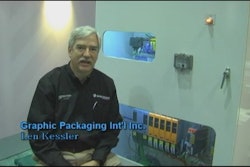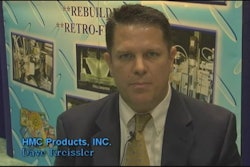The progress I referred to at the top of this column is unfolding at Atlantic Packaging Products Ltd., a Toronto-based producer of corrugated that has earned PACsecure HACCP certification. The PACsecure standard was developed over the past six years by an 80-member committee of The Packaging Association (formerly the Packaging Association of Canada) in conjunction with the Canadian Food Inspection Agency.
According to James Downham, president and CEO of The Packaging Association, the PACsecure standards are the most comprehensive food safety standards for packaging materials in the world. “They have already been approved by the Food Safety Alliance for Packaging,” says Downham.
Back to what’s been happening at Atlantic Packaging. In the past few years, management at Atlantic has watched the container volume that it produces shift to food and beverage producers and away from major industrial accounts. Recognizing that it made strategic sense to focus on food and beverage producers for future growth, Atlantic undertook a corporate strategic initiative that Perter Garvey, vice president of sales and marketing for Atlantic’s corrugated division, describes as “a combined sales, marketing, and manufacturing action plan based on the most important requirements of our existing customers.” At Atlantic’s Mississauga facility, the first of Atlantic’s converting plants to gain PACsecure HACCP certification, plant manager Dan Elliott puts it this way: “In order to meet our customer’s future corrugated packaging needs, we had to become more like them in terms of process security and plant hygiene.”


























